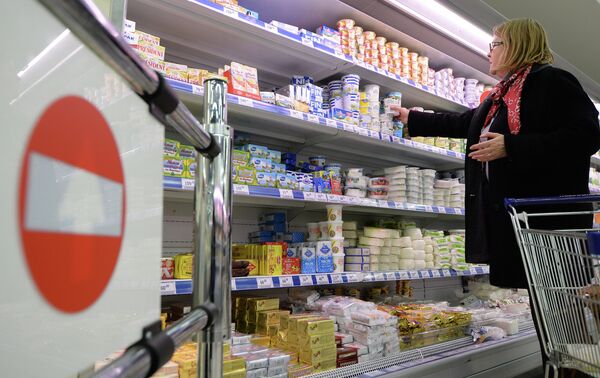VILNIUS, August 8 (RIA Novosti) – Lithuania’s gross domestic product (GDP) growth will lose 0.2 percentage points due to Russia’s foods import ban, the Baltic nation’s Finance Minister Evaldas Gustas said Friday.
“In the light of Russian sanctions, we can affirm that, according to our estimates, the impact [of the ban] won’t be devastating. If this process drags out, the food embargo may slow down the GDP growth by 0.2,” Gustas said on the heels of a meeting with Lithuanian President Dalia Grybauskaite.
The Lithuanian Finance Ministry predicts a 3.4-percent GDP growth in 2014. According to the country’s state-run Versli Lietuva business consulting agency, the ministry has allotted an additional $1 million to prop up its export figures.
Lithuania is believed to be the most vulnerable country targeted by Russia’s agricultural embargo as its exports of the now-banned foods to Russia make up about 2.5 percent of the nation’s GDP, according to BBC.
Lithuania’s exports to Russia include cheese, cottage cheese, meat, animal feed, potatoes, canned beans, fish, live pigs and drinks, although beverages were not on the “blacklist.”
On Thursday, Russia imposed a one-year ban on the imports of beef, pork, poultry, fish, seafood, milk, dairy products, as well as fruits and vegetables from the European Union, the United States, Australia, Canada and Norway.
At the height of the Ukrainian crisis, the United States imposed several rounds of sanctions against Russian officials, business people and companies and pressed for its allies in the West to follow its lead. The European Union, Canada, and Australia soon caved in and drew up their own blacklists.
Moscow said it was ready to review the terms of its import restrictions if its Western partners showed a commitment to dialogue.


